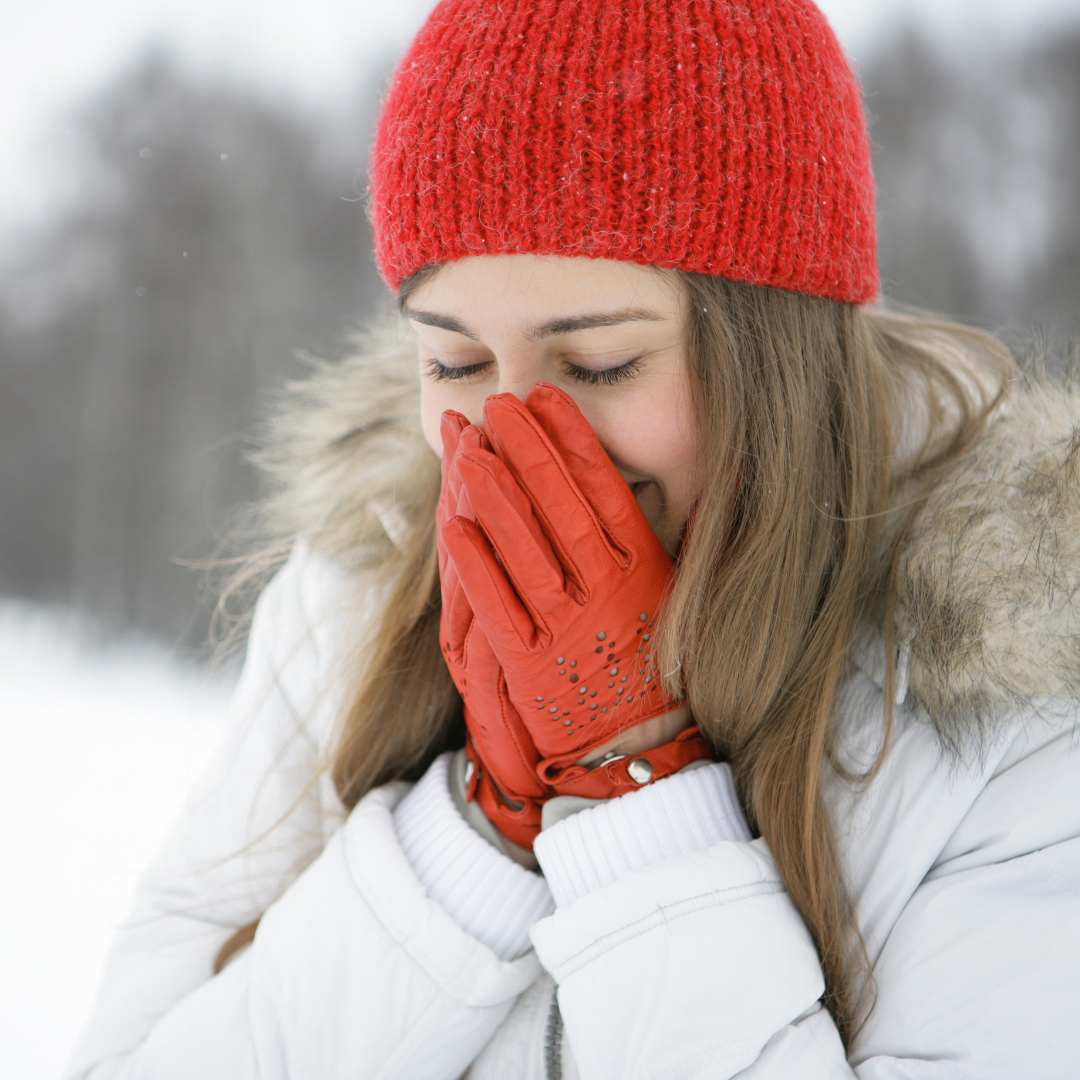

How cold weather affects your skin
Winter is around the corner. This means long cozy nights by the fire and romantic snowy walks. Unfortunately, for many of us, the cold weather that comes along with the winter can also cause skin problems, such as dry skin that is rough, flaky, itchy, and cracked. So what is it about the cold weather that can cause skin problems? And what can you do to prevent it?
Cold weather and your skin
The main culprit of dry skin in the wintertime is a lack of humidity in the air. The cold air outside is low in water, but so is the air inside due to our indoor heating. Cold winds can also strip moisture away from the skin.
Your skin is made up of lots of overlapping scales that are held together and smoothed down with oily glue. When the skin becomes dehydrated, the glue that holds the skin cells together becomes unstuck. This makes the scales stick up, which can cause the roughness and flakiness you see with dry skin.
Certain parts of the body are more likely to react badly to dry skin, leading to chapped lips, cracked heels, and dry itchy hands. If you have eczema or psoriasis, dry skin can cause flare-ups, so it is especially important for you to prevent it as much as possible.
How to prevent dry skin in the winter
Use a humidifier. This will increase the water in the air around you and help to stop your skin from drying out.
Skip the long hot showers and baths. As tempting as it may be in the winter, it is best not to soak in hot water as this will strip even more moisture from your skin. Keep your showers and baths short and the water lukewarm. Pat, don't rub when you are drying off after bathing to avoid irritating your skin any further.
Avoid harsh soaps. The chemicals in these will strip the natural oils from your skin.
Moisturizer to the rescue
The single biggest thing you can do to prevent dry skin in the cold weather is to add the moisture back in using a moisturizing cream. Moisturizers hydrate the outer layer of skin, seal in moisture, and smooth the skin back down by filling in the gaps between the skin's cells.
Apply your moisturizer as soon as you have finished bathing as this will trap the water from your shower or bath into your skin. Exfoliate gently to allow the moisture to penetrate into your pores. You should also apply your moisturizer thickly, especially in problem areas.
If you are looking for a moisturizer that is chemical-free and made with all-natural ingredients, try our Honeybutter. It's formulated with organic Manuka honey, which will help to heal your skin if it has become damaged. It also contains sweet almond oil, beeswax, and coconut oil to help seal the moisture in. The vitamins A and E will stimulate your skin to regrow new cells and will reduce inflammation. And if your skin is feeling itchy, the tea tree oil will help to relieve it. Whatever your winter skin problem, Honeybutter has you covered!
